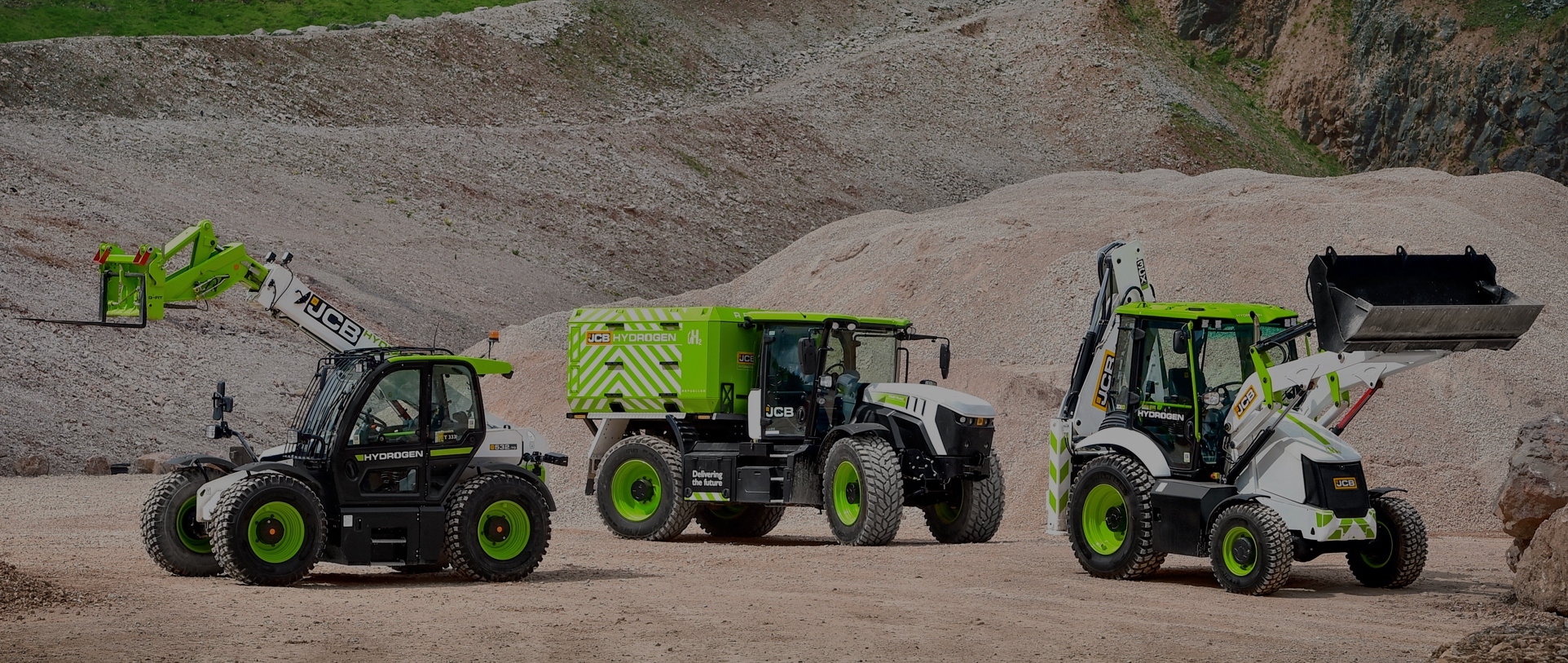

Hydrogen to power next generation of plant machinery
Hydrogen is looking increasingly as though it was made for plant machinery.
Not only are some of the biggest names in the business backing the zero-carbon fuel, including JCB, Volvo and Hyundai, the infrastructure to roll it out is also coming together.
This week, JCB unveiled the world’s first mobile site hydrogen refueller for its hydrogen-powered backhoe loaders and telehandlers.
The design of the refuellers follows the same logic as the other hydrogen-powered vehicles JCB has developed in that it works much like the diesel equivalent.
JCB has opted for hydrogen combustion engines to power its next generation of plant equipment, meaning that the thousands of mechanics and engineers around the world that already know how to service their vehicles won’t have to completely reskill, minimising the cost of transition for its customers.
Currently, about 97% of construction machines are refuelled while working on site – switching to hydrogen allows them to continue to work in a manner they are used to, filling up in a matter of minutes, rather than sitting idle for hours while a battery is recharged.
JCB began its hydrogen journey at its Derbyshire R&D centre in July 2020 and unveiled its first prototype hydrogen-fuelled piston engine 10 months later. In November 2021, JCB announced an increase in the number of engineers working on the development of its hydrogen engines from 100 to 150 and a plan to invest £100 million in the technology. It expects to have the engine ready for pre-production by the end of 2022.
JCB has since been joined by the likes of Volvo Construction Equipment and Hyundai Construction Equipment in exploring the potential of hydrogen to power plant machinery.

JCB began its hydrogen journey at its Derbyshire R&D centre in July 2020 and unveiled its first prototype hydrogen-fuelled piston engine 10 months later. In November 2021, JCB announced an increase in the number of engineers working on the development of its hydrogen engines from 100 to 150 and a plan to invest £100 million in the technology. It expects to have the engine ready for pre-production by the end of 2022.
In June this year, Volvo Construction Equipment started testing the world’s first hydrogen articulated hauler prototype. The Volvo HX04 was born out of a four-year partnership with RISE Research Institutes of Sweden, who provided specialist competence on driveline development and safety, and PowerCell Sweden, a developer of fuel cell-based hydrogen-electric power solutions.
Shell provided a hydrogen refuelling station at the Volvo CE test track in Braas. It can be filled with 12 kg of hydrogen in 7.5 minutes, allowing it to operate for about 4 hours. As with all hydrogen fuel cells, the only by product is water vapour.
Also in June, Hyundai said it plans to introduce hydrogen-powered excavators from 2023. The 14-tonne HW155H concept wheeled excavator is powered by hydrogen fuel cells and offers 8 hours of operation after 20 minutes of refuelling.
Hyundai’s machine is being showcased this week at BAUMA in Munich, Germany, the world’s largest construction machinery trade fair, where Liebherr is debuting its hydrogen-powered R 9XX H2 crawler excavator.

Hyundai said it plans to introduce hydrogen-powered excavators from 2023. The 14-tonne HW155H concept wheeled excavator is powered by hydrogen fuel cells and offers 8 hours of operation after 20 minutes of refuelling.
The R 9XX H2, developed by Liebherr-France SAS in Colmar, follows JCB’s lead in that it features a hydrogen combustion engine instead of fuel cells. The engine can reduce CO2 emissions by almost 100% on a tank-to-wheel basis or by 70% cradle-to-grave, i.e., including the manufacture of the engine itself, Liebherr says.
U.S. engine manufacturer Cummins has also been researching hydrogen combustion products since mid-2021 and recently announced an agreement with agricultural equipment company Versatile to develop a hydrogen-powered tractor.
Cummins’ “goal is to have a common engine from the head gasket down across all three of the fuels that they’re planning on making the engine capable of running on, that being diesel, methane and hydrogen,” said Erron Leafloor of Versatile.
In May of this year, global miner Anglo American unveiled a hydrogen fuel cell replacement for its fleet of diesel-powered monster trucks. The 220-ton beast can carry 290 tons of ore without producing any planet-warming emissions.
After considering options including synthetic fuels and biofuels, it became “crystal clear” hydrogen was the right solution for the job, according to CEO Duncan Wanblad.
Batteries are not practical for equipment with high power demands, and that work in remote locations, such as backhoe loaders and large excavators. Batteries weigh too much, cost too much and recharging them takes hours, meaning unacceptable levels of downtime.
“Fossil fuels are not the future and hydrogen is the practical solution to powering our machines in the decades to come,” JCB Chairman Lord Bamford said when unveiling the hydrogen refueller. “Our British engineers are doing a fantastic job in developing this technology and there are many more exciting developments to come.”

Batteries are not practical for equipment with high power demands, and that work in remote locations, such as backhoe loaders and large excavators. Batteries weigh too much, cost too much and recharging them takes hours, meaning unacceptable levels of downtime.
Hydrogen fuel is a “slam dunk” for heavy-duty transport, including buses, trains, trucks, shipping and aviation, ReThink Energy wrote in a report in June, citing their faster recharging times, superior cycle life and range compared with battery electric vehicles.
As investment in hydrogen vehicles, plant equipment and associated technology continues to increase, ReThink’s prediction is rapidly becoming reality.
To learn more about HYCAP click here.